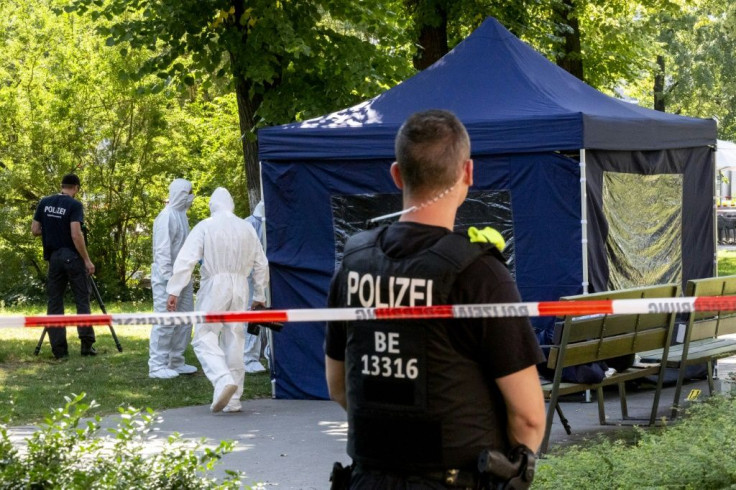Russia To Expel Two German Diplomats In Tit-for-tat Move

Russia said Thursday it was expelling two German diplomats, in a tit-for-tat move after Berlin ejected two Russians over the killing of a former Chechen commander in a Berlin park.
Germany immediately protested the move, warning that Berlin could take "further action" in the escalating row.
"As a retaliatory measure, the Russian side has decided to declare two employees of the German embassy in Russia 'persona non grata'," the Russian foreign ministry said in a statement, giving them seven days to leave.
The ministry made the announcement after summoning German Ambassador Geza Andreas von Geyr and issuing a formal diplomatic protest over the "groundless" expulsion of Russia's Berlin-based diplomats.
Germany expelled the Russians last week after prosecutors said Moscow could be behind the murder of Zelimkhan Khangoshvili, a 40-year-old Georgian national.
Khangoshvili was shot twice in the head at close range in Kleiner Tiergarten park in August, allegedly by a Russian man who was arrested shortly afterwards.
The case has been compared with the poisoning of former Russian agent Sergei Skripal in Britain last year with a Soviet-era nerve agent, which plunged relations between London and Moscow into a deep freeze.
German federal prosecutors have said they have evidence to suggest that the killing was carried out on behalf of the state agencies of Russia or Chechnya.
Germany's foreign ministry said Russia's decision to expel the diplomats was "unjustified".
"A serious and immediate cooperation of the Russian authorities is urgently required," a ministry spokeswoman said, warning that the German government could "take further action in this matter."
Kremlin spokesman Dmitry Peskov said the German envoys' expulsion was an "unavoidable" retaliatory measure and voiced hope that the move would not negatively affect ties.
Peskov said that Russia had earlier requested that Germany extradite Khangoshvili, claiming that European countries still harboured "a lot of people involved in terror acts" and killings in the volatile Caucasus.
Russian President Vladimir Putin, speaking in Paris on Monday, described Khangoshvili as a "fighter, very cruel and bloody" who has fought with separatists against Russian's forces in the Caucasus and also been involved in bombing attacks on the Moscow metro.
He said Moscow was ready to help Germany in the investigation.
The suspect in the killing was said to be riding a bicycle and was seen by witnesses afterwards throwing the bike and a stone-laden bag with a gun into a river.
German police also recovered a wig he was alleged to have used.
Chancellor Angela Merkel has said Germany had acted "because we have not seen Russia supporting us in clearing up this murder".
German police named the alleged killer as Vadim S. and the investigative website Bellingcat said the suspect was 54-year-old Vadim Krasikov, who grew up in Kazakhstan when it was part of the Soviet Union before moving to Siberia.
© Copyright AFP {{Year}}. All rights reserved.




















